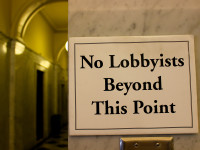CRTC Chair Jean-Pierre Blais participated in a fascinating question-and-answer session at MIT this week in which he bluntly spoke out on a wide range of topics including cultural issues, copyright, and Internet policy. I’ll have a future post on his culture comments (his copyright remarks noted that the zero rating decision may help solidify ISPs’ status as common carriers), but his frank response on Internet investment was particularly noteworthy.
Readers of this blog may recall one of my posts from June 2016 in which I noted that Bell told the CRTC and the government that requirements to share fibre networks could reduce their investment in the sector, but that a top executive told investors that it was going to continue to build fibre networks since they were critical to the company’s future, offering significant cost savings and higher revenues. It would appear that the CRTC took note of the same contradictions. When asked about the CRTC fibre decision at roughly the 34 minute mark, Blais responded:











